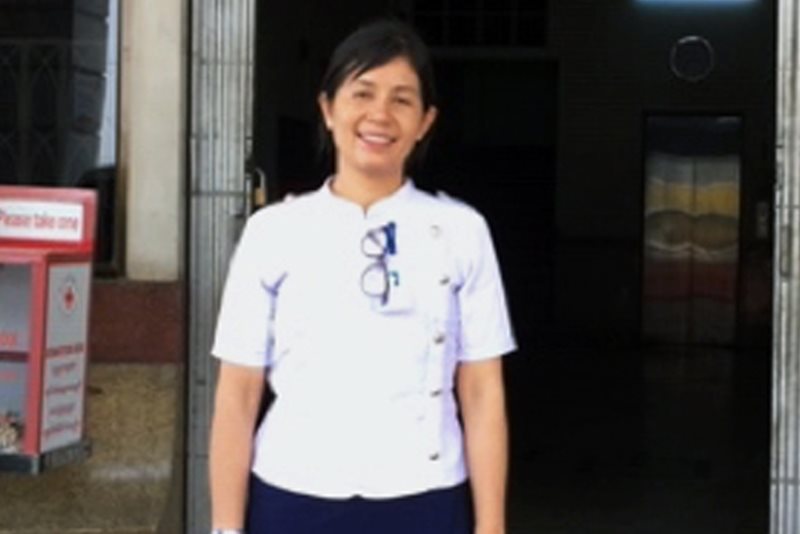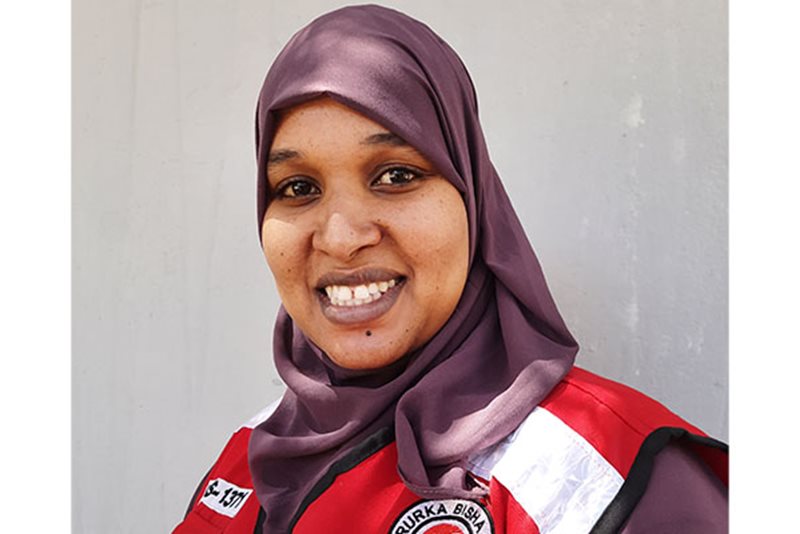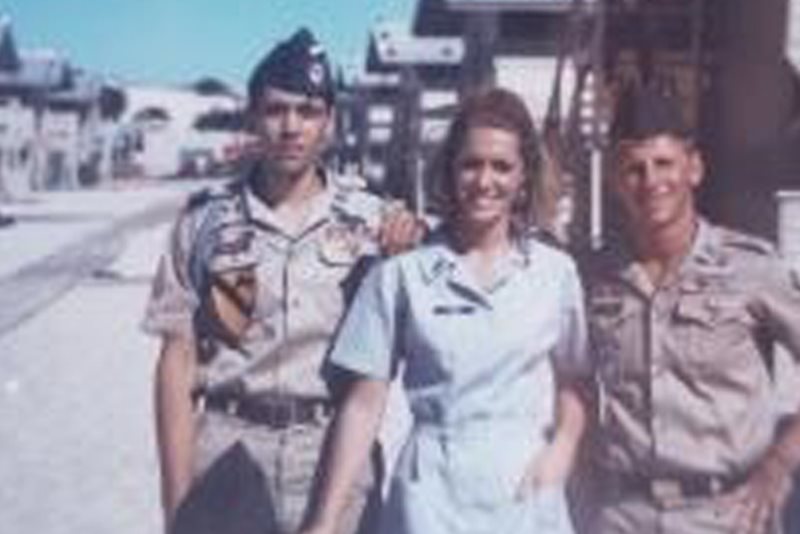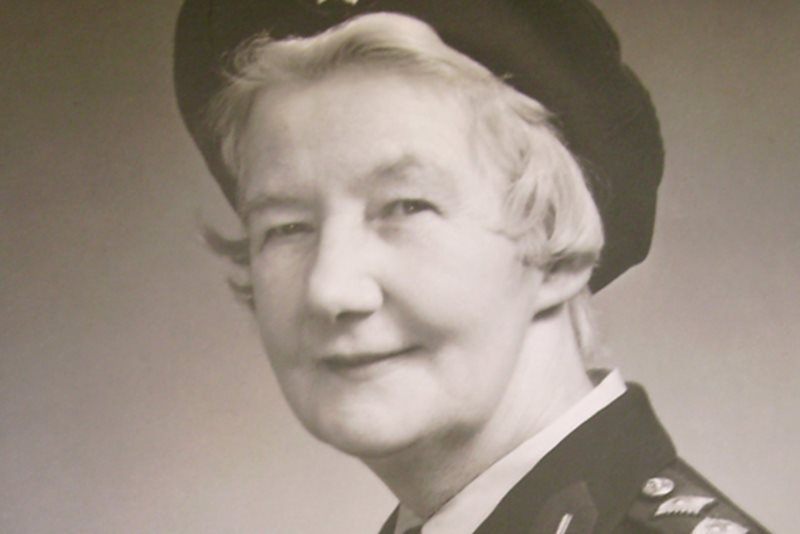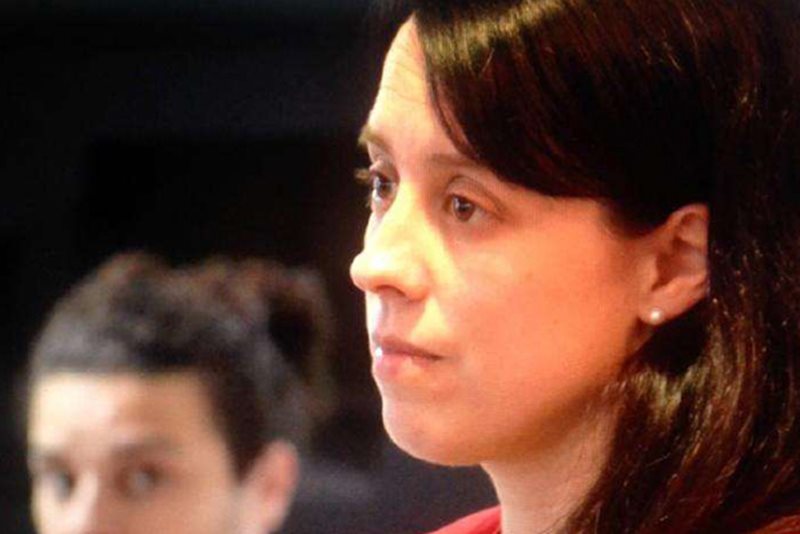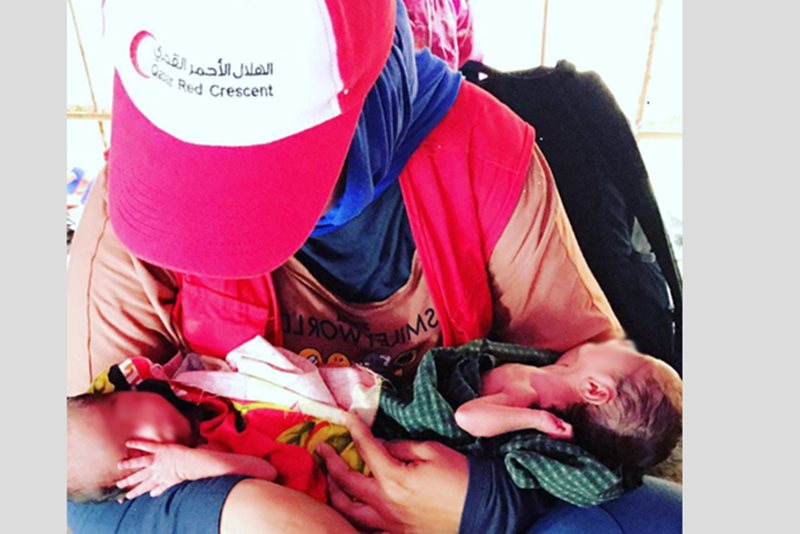

Reema is a member of IFRC Field Assessment and Coordination Team (FACT) that is mandated to assist people in need as soon as a disaster happens. She is one of few women from the Middle East who are on the surge list, ready to be deployed whenever needed. ”I recommend that Arab women from MENA Red Crescent and Red Cross should be represented in the surge system. It is important for localization and ensuring that MENA national societies can support each other in emergencies.”
– Reema Al-Merekhi, Qatar”The best moments are when you work with volunteers to assist the people who are in need”
Reema believes that the deployment has increased her: ”Confidence in myself and my negotiating skill with host and partner national societies and has given me a better understanding of the Red Cross and Red Crescent Movement. The best moments are when you work with volunteers to assist the people who are in need.”
Initially Reema felt overwhelmed with the scale of the population movement and the scope of the needs. “It was tough, all the displaced people were in need. The number of people arriving to Cox Bazar increased day by day. We had to prioritize our work and use our FACT training and QRC experience to know where to start,” she said.
During her 45-day deployment, Reema undertook emergency needs assessments and supervised distributions to affected communities. During her mission to Cox Bazaar, Reema trained 20 Bangladesh Red Crescent Society (BRC) volunteers in emergency needs assessment, ensuring sustainability of quality service delivery after the end of her deployment.
Reema Al-Merekhi attended the IFRC’s Global Surge Meeting in Geneva last month, which brought together 80 participants to discuss progress against the IFRC’s surge optimisation process. Reema, a volunteer with the Qatar Red Crescent since 2013 and a QRC Board Member, was FACT trained in 2016 in Doha.
After violence in Rakhine state, Myanmar, on 25 August 2017, more than 700,000 people crossed the border into Bangladesh. Since then, BRC supported by the IFRC and Red Cross and Red Crescent partners from around the world, has reached more than 250,000 people with emergency help including healthcare, food, water and shelter. More than 160,000 people have received medical care.

7 young women for every 10 young men complete upper secondary school in low-income countries. If we want more future female leaders, we need to close the gender gap in education.



